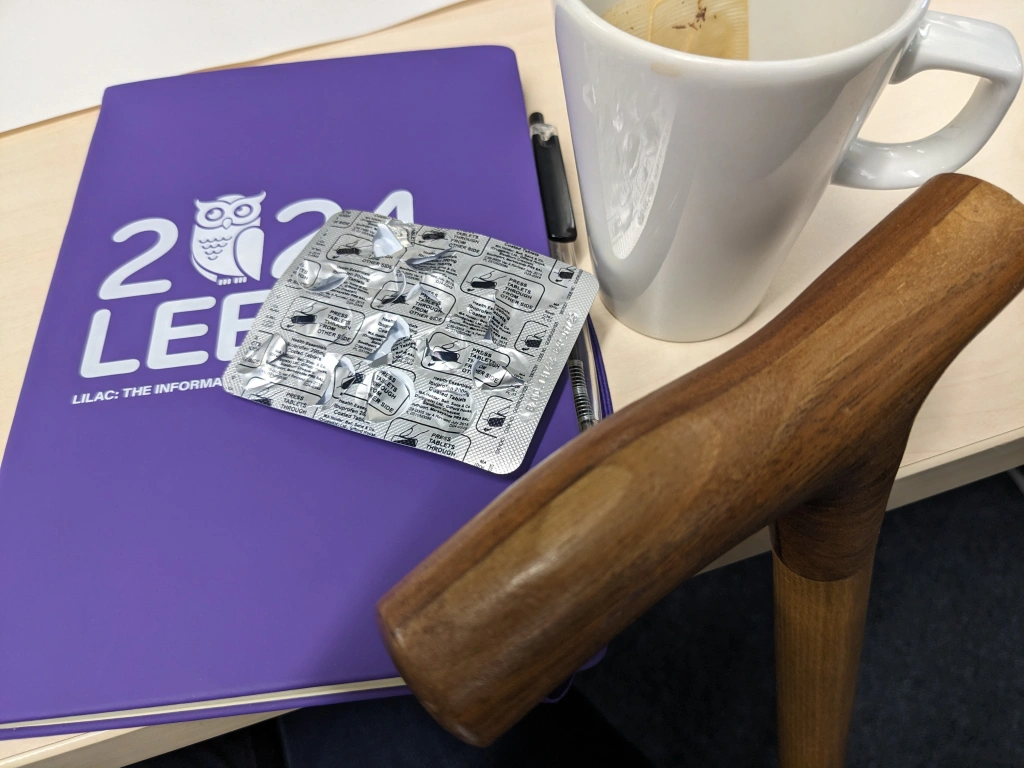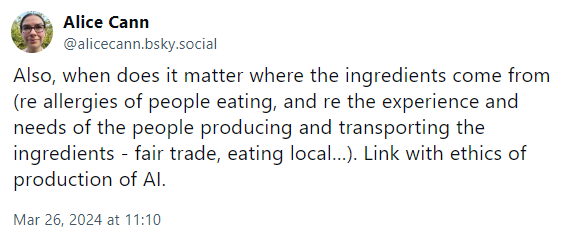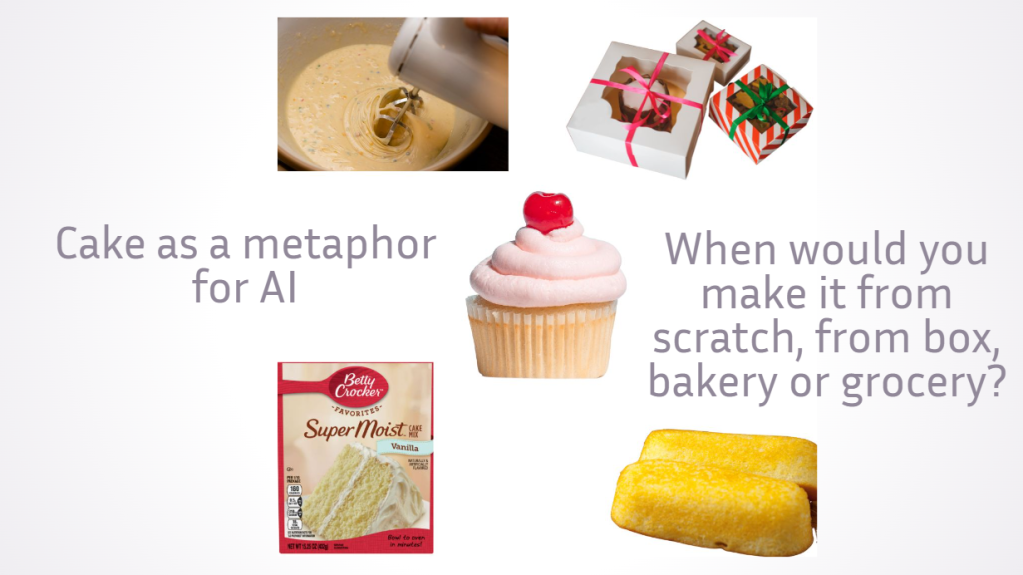Last week I was at LILAC, the annual conference on information literacy, at Leeds Beckett University. Now that I’m recovering from the exhaustion of a three-day conference, I thought I’d share some thoughts and reflections on my highlights and learning points from the conference.
Navigating LILAC with a knee injury
I’m starting with this before getting into my learning points because honestly, it shaped my whole experience. I had a minor operation on my right knee at the start of March, which I am still recovering from. I thought I’d be more recovered than I was by the time LILAC came around, but it turns out that navigating a conference three weeks after knee surgery is HARD. I missed out on most of the social and networking side – largely because I skipped the two evening events in favour of icing my knee in my hotel room! But also because, with my mobility restricted, I couldn’t really circulate and seek people out during the lunch and coffee breaks the way I usually would. I noticed that despite skipping all the socialising, I was exactly as exhausted at the end of the conference as I would have been after my usual three days of busy networking and late nights! So I’m putting that down to the extra energy I’m expending in just getting around, plus the toll that healing takes on your body.
The other thing I feel is important to mention is pain. I don’t think I’d ever really grasped just how all-encompassing pain is. It is harder to concentrate, to be present and to think and discuss ideas when you are in constant pain. I also have a greater appreciation for accessibility challenges now! Although I’d like to hope I’ve always been reasonably well-attuned to the need for accessibility, knowing about the difficulty of navigating the world in a body that doesn’t quite do what you need it to is very different to actually living that experience.
I would like to say a massive thank you to the LILAC committee for working with me to make my experience at the conference as manageable as possible. As well as to everyone at LILAC who held open doors, patiently waited for me to make my slow and painful way into lecture theatres, and brought me cups of tea!

The importance of cake
And not just for the sugary energy boost required for three days of conferencing… Genuinely one of my major takeaways from this year’s LILAC was a metaphor used by Maha Bali, the day 2 keynote speaker. Her talk was absolutely brilliant, one of the best keynotes I think I’ve ever seen. I would strongly recommend reading through Maha’s slides, and there is a recording available of another conference talk she gave recently which she has described as “similar but not identical” to her LILAC keynote.
In Maha’s discussion on teaching critical AI literacy, she mentioned that she uses a baking metaphor to help students understand when it is appropriate to use AI and when not. She used three “levels” of cake-making to make her point: baking from scratch, using a box mix, or buying a ready-made cake. If a good friend has a big birthday celebration, then if you are a keen baker you might want to make them a cake from scratch. On the other hand, if you’ve never baked before then maybe this isn’t the time to experiment, and you’d be better off using a box mix to get the basic cake done, and then decorate it yourself to add a personal touch. Or maybe, if it’s an office party for someone you barely know but everyone has been asked to contribute some food, maybe you just buy a packet of Jaffa Cakes and call it a day.
Just as we accept that socially, all of these approaches are acceptable in different circumstances, so it is with AI. Doing something where the process doesn’t really matter and the output is low-stakes and simple? Use AI. If the process matters a bit and the output has to be more robust? Maybe use AI for the framework and then flesh out the details yourself. Doing something where you are being judged on both the process and the output, and both need to be high standard? Do it from scratch.
I love this metaphor as it’s easily graspable, and applicable in many different scenarios. Alice Cann on Bluesky pointed out that you could also add in points like whether the “ingredients” are important:

I also think it could be extended beyond just use of AI, to information literacy more broadly. This came up in a couple of other talks: in his day 3 keynote, Andy Walsh talked about compassionate pedagogy, and helping students to understand when a “least effort” approach can be enough, rather than terrifying them into thinking if they’re not doing a fully Booleaned-up systematic search then they’re doing it wrong. In their excellent panel discussion on social class, Darren Flynn, Rosie Hare. Jennie-Claire Crate, Ramona Naicker and Andrew Preater also discussed helping students who may come in with less experience of academic conventions (e.g. if they are the first in their family to attend university) by helping them to identify the shortcuts that are acceptable to use.
Challenging our assumptions
Speaking of the social class panel, that was probably one of my favourite sessions of the conference. There are some great provocations on the Padlet that was shared before the session, and I believe the panel plans to blog some reflections and responses to the points raised.
One early point was about how important it is to incorporate critical theory into our work in order to support social justice. On the Padlet, several people had commented along the lines that they felt critical theory was too complex, requiring “fancy terminology”, and was irrelevant to students’ needs in an information literacy classroom. The panel pushed back on this, arguing that a) you don’t need to have read all the books on critical theory and be able to quote Marx at the drop of a hat to be able to bring criticality into your practice; and b) suggesting that critical theory is irrelevant to working-class students’ experiences suggests that you don’t think that issues of power structures and systemic injustice are important. The panel suggested that the idea of critical theory being too complex or difficult to address in an IL setting could be an excuse to hide behind! They noted that using critical theory in practice means things like interrogating your own assumptions, promoting critical thinking skills, and questioning what information sources you use/promote. They’re not suggesting librarians need to open IL classes with a lecture on Paolo Freire!
On a practical note, I picked up lots of useful and thought-provoking ideas from this session that I intend to put into practice. One was about using words like “obviously” – I’m sure I say this a lot, it’s one of my verbal tics! But as Ramona pointed out, calling something “obvious” is really othering for people who don’t already know about that thing. That really struck a chord with me, so I’m going to aim to scrub that word from my vocabulary! From the audience, Jess Haigh also noted that in inductions, it is really helpful to directly address the library anxiety that many students have (this won’t be limited to working class students, but may well be more common among this group). She said she will often say explicitly “you may have come from a school or college where the library was somewhere you sent if you were naughty, that doesn’t happen here”! Darren agreed, and said that it’s much better to include helpful pointers like this than the usual quasi-marketing talk about how old the university is and how many books are in the library – students generally don’t care about this information, but if anything it’s likely to be intimidating for those who are new to academic environments.
Elsewhere, another favourite session was Becky Scott’s talk on using narrative inquiry. I LOVED this talk, and would be fascinated to see more of her research! She talked a little about how her research approach involved countering some expectations of what academic research outputs look like, particularly when it comes to publishing. The research outputs being produced are in the form of poetry – Becky read one of the poems she’d written based on one of her interviews, and it was wonderful. I love the idea of using poetry to create a true reflection of what an interviewee has said and what they meant. It got me thinking about what we think research looks like, and how creative research methods can challenge this.
Reading
Finally, another theme that came up a few times was the importance of teaching people how to read. Now given that the audience of this conference is predominantly higher education librarians, we weren’t talking about basic literacy! But more, how to help HE students learn the skills needed to read academic works.
In my wonderful colleague Zoë Johnson’s workshop, we discussed in groups various questions including: do we see a decline in reading at our institutions? How are students taught to read academic texts, and whose responsibility is this? Does format (ebook, audiobook, or standard paper book) matter?
We discussed a number of points including, where does teaching the skills for academic reading fit into the curriculum? University lecturers often bemoan their students not having learned these skills at school or college, but where would teachers fit these in? My own opinion on this is that I think it’s unhelpful to complain about what knowledge students do or don’t have when they arrive at university. Until someone invents a time machine, we have to teach students at the level they arrive with, so what is the best way to do that?
We also discussed the shift to ebook-first models that many university libraries now follow, and how this may have impacted student reading. Although the promise of ebooks was that they offered a flexible and cost-effective approach to collection development, in practice the experience of reading a library ebook is so poor that most students simply don’t use them.
In another session, led by Tasha Cooper and Alison McKay from UWE Bristol, we participated in an academic reading circle (ARC). The idea of an ARC is that in groups, everyone reads the same article, but each person takes a different role and reads through that lens. The roles are flexible, but the three we used in this session were the Visualiser, who creates a visual representation such as a mind-map of the article; the Connector, who follows up links or references in the article, or looks up other information or related concepts; and the Facilitator, who gets the discussion going and thinks of questions to ask.
We each picked our roles, then read a short journal article on media literacy and body image. Then each of the “roles” got together with others of the same role (i.e. all of the Facilitators together, etc.) to discuss what we had picked up on from the article. Then we went back into our groups of three (consisting of one Visualiser, one Connector and one Facilitator) and had group discussions about the article.
I really enjoyed doing this, and can see how it would be really helpful for students in developing their reading skills. I had initially assumed that this was an activity that the presenters used with researchers and/or academics in their institution, but I was mistaken – they actually do this with undergraduates, mostly first years, in health care and social work courses. I love this idea and am thinking about how I could introduce something similar with my own students.
Concluding thoughts
Overall, I have lots to think about from LILAC this year. Although my restricted mobility meant it was quite a different experience than usual, I really got a lot out of it. The programme this year was fantastic, I’ve only mentioned here a couple of standouts, but I learned something useful from every session I attended!
I’m looking forward to LILAC 2025 in Cardiff! Hopefully by then I will a) be able to get around easier (and get back on the dance floor at the conference dinner!) and b) have some early insights to share from my PhD, for which I start data collection in the autumn term of 2024-25.

I enjoyed reading your reflections Laura and admire your honesty about the pain you were experiencing. I missed out on so much being there for such a short time but I will delve into Zoe’s slides. Thanks for recommending. I developed (with my wonderful colleague Jane) a session for academic staff based on Jenae Cohn’s book about digital reading: Skim Dive Surface (such a great book). The themes you mention really resonate.
Thank you Becky! It was great meeting you at LILAC, and I really enjoyed your talk 🙂
Thank you so much. Your comments give me such a boost. I’m wrestling with a transcript where a thread exists through multiple stories. Tricky.